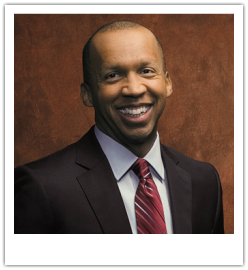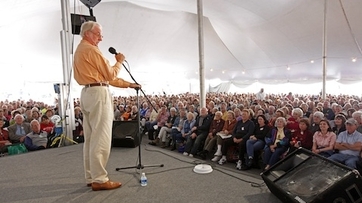 Bryan A. Stevenson
Bryan A. Stevenson He goes on to say that Stevenson has what Aristotle called “pathos.” Aristotle believed that persuasion occurs when three components are represented: ethos, logos, and pathos.
- Ethos is credibility. We tend to agree with people whom we respect for their achievements, title, experience, etc.
- Logos is the means of persuasion through logic, data, and statistics.
- Pathos is the act of appealing to emotions.
The results... Ethos made up 10% of Stevenson’s content and Logos only 25%. But Pathos made up a full 65% of Stevenson’s talk.
- Ethos 10%
- Logos 25%
- Pathos 65%
Why don’t you consider giving stories a starring role in your next presentation, especially if your aim is to persuade others to act based on what you are presenting. Drop some of the hard facts, choosing only the most convincing ones that will also be readily understood by your audience.http://www.forbes.com/sites/carminegallo/2014/03/07/public-speaking-payoff-the-presentation-worth-55000-a-minute/
http://www.ted.com/talks/bryan_stevenson_we_need_to_talk_about_an_injustice


 RSS Feed
RSS Feed